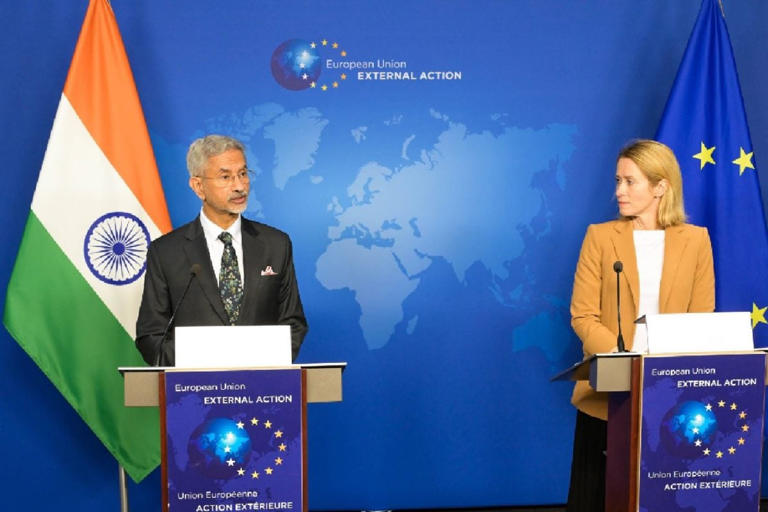Jaishankar’s Blunt Message in Brussels – Terrorism, Not Bilateral Conflict
In a strong and unambiguous message from Brussels, India’s External Affairs Minister Dr. S. Jaishankar declared that the world must stop viewing the issue as “India vs Pakistan” and instead recognize it as “India vs Terroristan.” Speaking alongside EU High Representative Kaja Kallas, Jaishankar made it clear that India’s conflict is not with a nation, but with the global machinery of terrorism — with Pakistan-based terror networks at its core.
#WATCH | "This is not a conflict between two states. This is actually a response to the threat and practice of terrorism. I would urge you not to think of it as India-Pakistan, but think of it as India-Terroristan," says EAM Dr S Jaishankar on a question from a member of the… pic.twitter.com/Fk97TwFj0d
— ANI (@ANI) June 10, 2025
This statement comes at a time when cross-border tensions and international diplomacy around terrorism are at a critical point. Jaishankar’s remark is not just rhetoric; it represents India’s evolving foreign policy strategy — shifting the global focus from traditional bilateral disputes to counter-terrorism cooperation. His words underscore India’s zero-tolerance policy towards terrorism and call on global partners, especially in the European Union, to align with India in isolating state sponsors of terror.
India’s Fight Against Terroristan: A Call for Global Consensus on Pakistan-Backed Terrorism
Dr. Jaishankar’s use of the term “Terroristan” is both diplomatic branding and strategic pressure. By decoupling the terrorism issue from the India–Pakistan binary, he reframed the global understanding of South Asia’s security landscape. He emphasized that terrorism is a shared, borderless threat, and demanded that international actors stop normalizing Pakistan’s behavior under the pretext of geopolitical balance.
Reaffirming India’s zero-tolerance stance on terrorism, Jaishankar stated that strategic deterrents like nuclear weapons would not shield Pakistan from being held accountable. India, he asserted, will not submit to nuclear blackmail or intimidation. Instead, New Delhi will respond decisively to any provocation, especially when it comes from non-state actors with state complicity.
Jaishankar also highlighted that India expects its international partners, particularly in Europe and the West, to acknowledge this new reality and help build diplomatic, economic, and legal pressure on terror-exporting regimes. His remarks were part of a larger diplomatic push to ensure that terrorism is addressed not as a bilateral grievance, but as a global security crisis that demands unified international response.
By turning the focus to Terroristan, India is not just defending its borders — it’s reshaping the global counter-terror discourse with clarity and conviction.





















